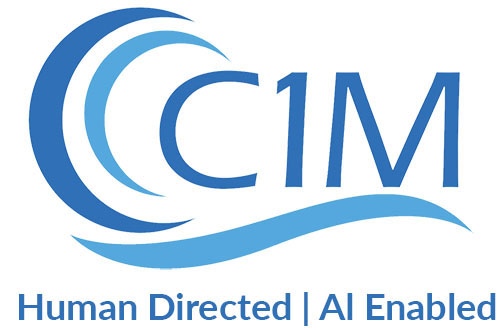
Search for your business on Google. Like what you see? Is it a fair representation? First impressions count! The top 10 web pages on the search engine results page will determine how the users feel, positive or negative, about your company.
Online reputation management (ORM) is about influencing people’s overall opinion of your brand.
In 2020, 87% of consumers read online reviews for local businesses. However, when a consumer reads a negative review, 92% are less likely to use that business, highlighting the importance of managing and monitoring your online reputation.
Brightlocal found that the average consumer reads 10 reviews before feeling able to trust a business. Therefore, local marketers should make sure that there are at least 10 visible reviews that represent their business fairly on each review platform.
To maximize the chance of increasing potential leads, it’s crucial to respond and address all reviews quickly. In this guide to online reputation management, we look at the best ways to manage your business’ reputation and how to leverage the good and handle the bad.
What Is Online Reputation Management?
ORM is a concept that is aimed at creating a positive perception of a brand or business. It means taking control of how your company is represented online, using techniques and strategies to ensure that potential customers are left with a great first impression of who you are and what you do.
Reputation management includes:
- Monitoring and managing your business’s online reputation
- Addressing negative reviews or feedback
How Can I Check My Business’ Online Reputation?
To gain an in-depth insight into what people really think of your business, you can start by running an audit to see how your brand is represented online. There are many sources of media where your company could be mentioned.
Semrush gives us a breakdown of each type of media to monitor:
Earned Media
Earned media is the coverage your business receives from external platforms, free of charge. It’s a great way to spread a positive outlook on your business and create expertise and trust for online visitors.
You can find any mentions of your business by setting an alert on Google for a selected keyphrase. Once set up, each time someone mentions your company, you will receive an automated email from Google to check the general vibe towards your business.
- External articles
- Press coverage
- Blogs and Vlogs
- Forums
- Industry-specific third-party listings such as Glassdoor and Trustpilot
- Reviews posted on your Google My Business page.
Shared Media
As well as your business’ website, you should have several social networks where you can reach and engage with your target audience. It is vital that you track when your company is mentioned on social media and address any negative feedback. You can do this by searching for your brand name in “all posts” on the required social platform.
Google and Facebook have a 76% share of all reviews, and 45% of consumers say they’re more likely to visit a business that responds to negative reviews.
Owned Media
This includes your website and blog—the properties you have full control of. A way to build your online reputation is to get your most important pages higher up in the search results rankings. This can be achieved with an effective SEO campaign. You can read more about the importance of SEO in our blog.
What Are the Best Platforms to Manage Your Online Reputation?
Online reviews and customer feedback shared on business review sites like Google, Yelp, Facebook, and TripAdvisor play a significant role in shaping your business’ reputation and influencing the success of a customer retention program.
Here are four important platforms that allow you to manage and monitor your online reputation using certain techniques and strategies:
1. SEO
Your online reputation can’t exist without SEO. So one of the first things you need to do when your website is ready to be found by the world wide web is to index your site to Google.
Don’t worry if you don’t know what that means. Our digital marketing experts can handle this for you. An SEO team can then create an effective SEO strategy for your website.
The goal? To be one of the first pages to show on Google for keywords related to the products and services you provide.
2. Google My Business
If you don’t have a Google My Business account yet, it’s imperative that you create one. The more information you add to your listing, the better.
You want to include:
- Your hours of operation
- The products and services you offer
- A high-level description of your business
- Your business category
- Photos and videos that document your atmosphere, your team, and your customers
- A link to your appointment booking interface
- Links to your social media profiles
Any reviews that clients leave must be responded to—good or bad.
3. Facebook and Messenger
Just like your Google My Business page, you should optimize your Facebook profile with equally as much information. You want to provide the visitor with as many details as possible, so they fully understand what it is you offer.
You should also respond to all reviews quickly to minimize the risk of any negative energy about your company spreading like wildfire throughout the social media world.
An interesting feature of Facebook is the Messenger ChatBot. You can set up automated questions and answers for instant responses, scoring points on customer service, and improving your online reputation.
4. Yelp
According to Brightlocal, the top review platforms are:
- Yelp
- BBB
- Tripadvisor
As you can see, Yelp is one of today’s most popular online review sites, and it has the power to influence purchase decisions and consumer behavior. Studies have shown that 82 percent of Yelp users visit the site when getting ready to spend money.
Also, 93 percent of these users go on to make purchases at the business they looked up and researched on the site. This goes to show how important having a strong online reputation on Yelp truly is.
Reviewtrackers revealed that brands that respond to at least one review earn 4% more revenue on average. Conversely, organizations that ignore and don’t respond to reviews are at risk of increasing their attrition rate by 15%.
On Yelp, you can configure notifications to send you alerts when your business receives a new review so that you can respond as soon as possible.
How to Monitor Your Brand’s Reputation
You can conduct a quick and simple audit of your brand reputation manually by following these guidelines:
- Open an incognito window and search for your brand name on Google.
- Check the sites that appear on the first page. How is your business perceived by these web pages?
- Take a look at the Google My Business page to evaluate your presence, such as ratings, comments, reviews, and user-generated photos.
- If you see any misleading information shared on third-party listings, reach out and ask to correct, add, or remove parts.
- Read through the reviews on all platforms to get an insight into the overall sentiment of your business. Is there a platform that requires the most urgent attention? Tend to that one first.
Why You Should Seek Expert Help to Manage Your Online Reputation
Managing your online reputation is a big task—but it’s a critical one for the health and growth of your business. Don’t let negative reviews or press damage the business you’ve worked hard to build.
You may be wondering how ContentFirst.Marketing can help you get those glowing reviews from your satisfied customers the digital air-time they deserve.
We are here to help you with every aspect of online reputation management. From helping you set up an account on Google My Business to getting your best customers to give you glowing reviews—it can be a lot to manage on your own. That’s why you need a guide like us.
Digital reputation management isn’t just about getting a review page set up, though that’s a critical first step. It also means sending your customers regular surveys after each purchase or visit to determine if you lived up to their expectations. Would they recommend you to their friends and family?
Our dedicated team at ContentFirst.Marketing will set up an automated system to collect this feedback for you—and put it to good use identifying customers who are your biggest fans and asking them to leave you online reviews.
Leave the hard work to us and see the results roll in as your online reputation grows. We’ll report back to you regularly on your progress here, too—we don’t just set it and forget it.
Let ContentFirst.Marketing Improve Your Online Reputation
To strengthen customer relationships, you should make reviews part of your engagement strategy.
Our team will:
- Monitor positive and negative feedback
- Resolve complaints
- Win back trust
Most importantly, we will empower you and your team to listen to the voices that matter most to your business: your customers. We will tap into valuable data by monitoring your reviews and also gain useful insights that will allow us to understand your customers and their needs better.
Schedule your free business review with ContentFirst.Marketing and get expert help managing your reputation as part of a strategic digital marketing plan. We’ve helped businesses like yours for years—find out what we can do for your business today.


